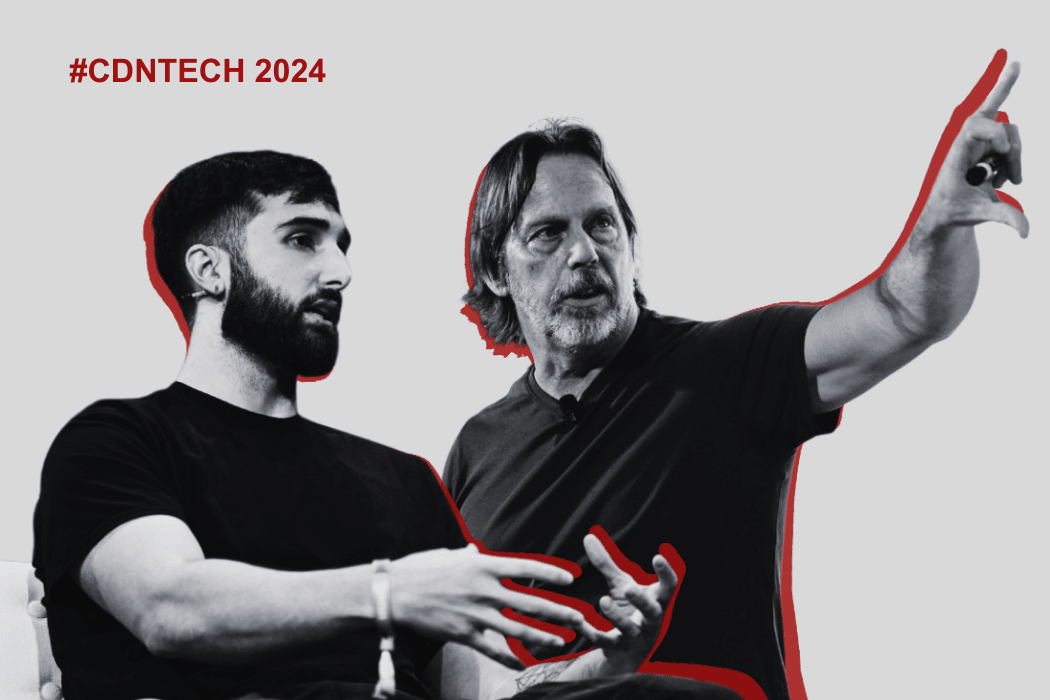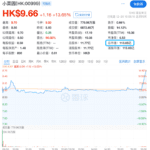Canada can’t outspend its peers. So how might it outsmart them?
2024 was the year that British-Canadian computer scientist Geoffrey Hinton won a Nobel Prize in Physics for his contributions to the field of artificial intelligence (AI).
2024 reinforced that Canada lacks the resources to win the AI war on all fronts.
His victory is a reminder of Canada’s strong tradition of AI research and talent, which has set it apart from other countries and fuelled the development of some promising domestic AI players. Hinton’s work and that of other Canadians helped lay some of the groundwork for this AI age.
But this is a global fight for AI dominance, one that the world’s technology giants and richest countries are looking to win—and they are also willing to spend whatever is necessary to come out on top.
2024 reinforced that Canada lacks the resources to win this war on all fronts, and offered evidence that the country does not have a clear AI strategy. As 2024 comes to a close, it is unclear if we have picked the right battle to fight.
Canada’s AI potential
Canada became one of the first countries to lay out a national AI strategy in 2017. Today, Canada has an undeniably strong AI research ecosystem.
Ambitious AI startups are also being built here across the AI stack and raising the capital to scale. Just this year, AI chipmaker Tenstorrent closed nearly $700 million USD, large-language model (LLM) developer Cohere secured $500 million USD, autonomous driving firm Waabi raised $275 million CAD, and text-to-image generator Ideogram nabbed $80 million USD, to name a few.
In terms of generative AI talent, Canada also has depth and breadth. According to a Deloitte reportCanada has 670 AI startups and 30 generative AI firms, ranking fourth globally in terms of generative AI companies per capita.
Canadian investors have also been putting more dollars and attention towards AI. Amid a particularly tough year for venture capital fundraising, Radical Ventures closed an $800-million USD AI growth fund, while upstarts like Intrepid Growth PartnersDefined Capital, and DevCap have emerged to take advantage of opportunities across the sector.
RELATED: Feds outline $2 billion in AI compute spending commitment
After years of relative underinvestment, Canadian organizations have also been outspending their global peers on AI and other tech as of late, per a recent KPMG report.
The federal government has also committed billions to building on Canada’s strength in AI research and safety and boosting domestic AI adoption and computing capacity.
These ingredients and trends place Canada in a good position to capitalize on the expected benefits of AI. However, Canada’s AI potential is not a guarantee of future success. Canada has a long, well-documented history of struggling to commercialize and scale its research and innovations, and the competitive and capital-intensive nature of AI likely requires a country like Canada to have a more targeted focus and execution when it comes to this tech.
Outgunned and unfocused
This year has demonstrated two things.
The first is that in terms of raw dollars, Canada simply cannot compete: our peer countries and foreign firms are spending more on AI than Canadian governments, companies, or investors, combined. Amid a global race where the world’s tech giants and others are poised to spend an estimated $1 trillion USD collectively on AI over the next five years, according to Goldman Sachs, Canada’s recent AI commitments and financings represent a drop in the bucket.
Radical just raised the largest AI fund of its kind, but it is still modest compared to the sums being poured into this space by other players. By way of comparison, the $2.2 billion CAD in VC funding Canadian AI startups raised in total in 2023, according to the Canadian Venture Capital and Private Equity Associationis less than a quarter of the $8 billion USD that Amazon alone has poured into LLM developer Anthropic.
The CVCA has found that Canadian AI companies still struggle to secure sufficient funding in Canada, something that former Untether AI CEO Arun Iyengar and others have lamented to BetaKit.
RELATED: Radical Ventures launches $800-million USD AI growth fund
Tenstorrent, which claims to remain committed to Canada, has nevertheless quietly moved south to access more funding from US investors as it looks to compete with US chip giant Nvidia. Even Canada’s biggest AI bets still face stiff competition from better-capitalized American players. In the LLM space, Cohere faces a tall order as it faces off against US rival OpenAI—the company behind ChatGPT—which just closed $6.6 billion USD this fall.
The second thing we have learned in 2024 is that Canada lacks a clear, focused AI plan. Some have questioned whether Canada has been throwing money into a race that has already been won and is spreading resources across too many projects at a time when the country still needs to figure out how to help finance and scale its AI companies in order to keep them here.
Phase one of the federal government’s 2017 Pan-Canadian AI Strategy focused on research, while phase two has targeted the commercialization and standardization of AI and attracting talent. The AI landscape has transformed since then, and the advent of generative AI products like ChatGPT has changed the game.
Since then, the feds have promised big investments in AI computing, allocated funding to fuelling AI adoption, and re-upped their support for the country’s national AI institutes. But Canada is still waiting for a more comprehensive phase three, which will need to account for AI advancements since 2022 and scope for what may come amid a highly competitive global environment. Meanwhile, the longstanding Liberal government’s future is now in question—introducing even more uncertainty.
RELATED: AI chipmaker Tenstorrent closes nearly $700-million USD Series D at $2.6-billion valuation
Meanwhile, the government’s AI computing commitments have been criticized as too little, too late and another possible flow-through to foreign AI companies or large multinationals. Some have also questioned why Cohere’s new federally-funded data centre is being built with US company CoreWeave and will use chips from American giant Nvidia rather than Canadian partners.
Experts have repeatedly argued that Canada needs to choose a few select lanes when it comes to AI, semiconductors, and other parts of the tech sector.
As Canadian Council of Innovators president Ben Bergen recently told BetaKit, “The government has to pick a few areas that it views as critical and then work with the companies that are in that space to help them.” In terms of industrial strategies, “focusing on everything and nothing all at the same time leads to no strategy,” he added.
“We just need to be realistic about what we can do,” former Scale AI COO Clément Bourgogne told the BetaKit Podcast last year. At the time, Bourgogne—who is now with Jolt Capital—argued that Canada needs to find niches where the country can play an important role.
RELATED: Cohere secures federal backing to build multibillion-dollar Canadian AI data centre
“We’re never going to dominate all of AI,” he said.
Mappedin CEO Hongwei Liu recently argued on the BetaKit Podcast that Canada needs to look at where the country can get the most leverage from its limited dollars, and not simply react to the US.
“Maybe we can be more strategic instead of reactive in terms of where we invest the next $10 billion, $100 billion of capital,” Liu said.
It is clear that Canada cannot win it all when it comes to AI. As a smaller nation with shallower pockets than the US, Canada must choose its battles wisely. Despite big commitments this year, it remains unclear if Canada can transform the expertise and investment in AI that led to a homegrown Nobel Prize into real economic or productivity growth for the country.
With files from Douglas Soltys.
Feature image courtesy Madison McLauchlan for BetaKit.







